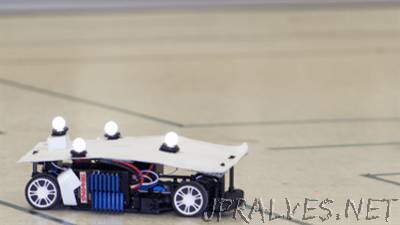
“Texas A&M University researchers have developed an intelligent transportation system prototype designed to avoid collisions and prevent hacking of autonomous vehicles. Modern vehicles are increasingly autonomous, relying on sensors to provide information to automatically control them. They are also equipped with internet access for safety or infotainment applications making them vulnerable to cyberattacks. This will only multiply as society transitions to self-driving autonomous vehicles in which hackers could gain control of the sensors, causing confusion, chaos and collisions. Although autonomous vehicles are essentially large computers on wheels, securing them is not the same as securing a communication network that connects desktop computers and smartphones to large geographical areas due to the roles that the sensors and actuators play in the physical layer of the network. Working in the Texas A&M’s Cyberphysical Systems Laboratory, Dr. P.R.Kumar, University Distinguished Professor in the Department of Electrical and Computer Engineering, along with graduate students Bharadwaj Satchidanandan and Woo-Hyun Ko, have applied the theory of dynamic watermarking of sensors in autonomous vehicles to prevent malicious attacks. In their research demonstrations, 10 cameras recorded the movement of the self-driving prototype vehicles. The vision sensors in the system received the images and accurately calculated the exact location and orientation of the vehicles. Then they transmitted this information to a server, which in turn controlled the vehicles.”
